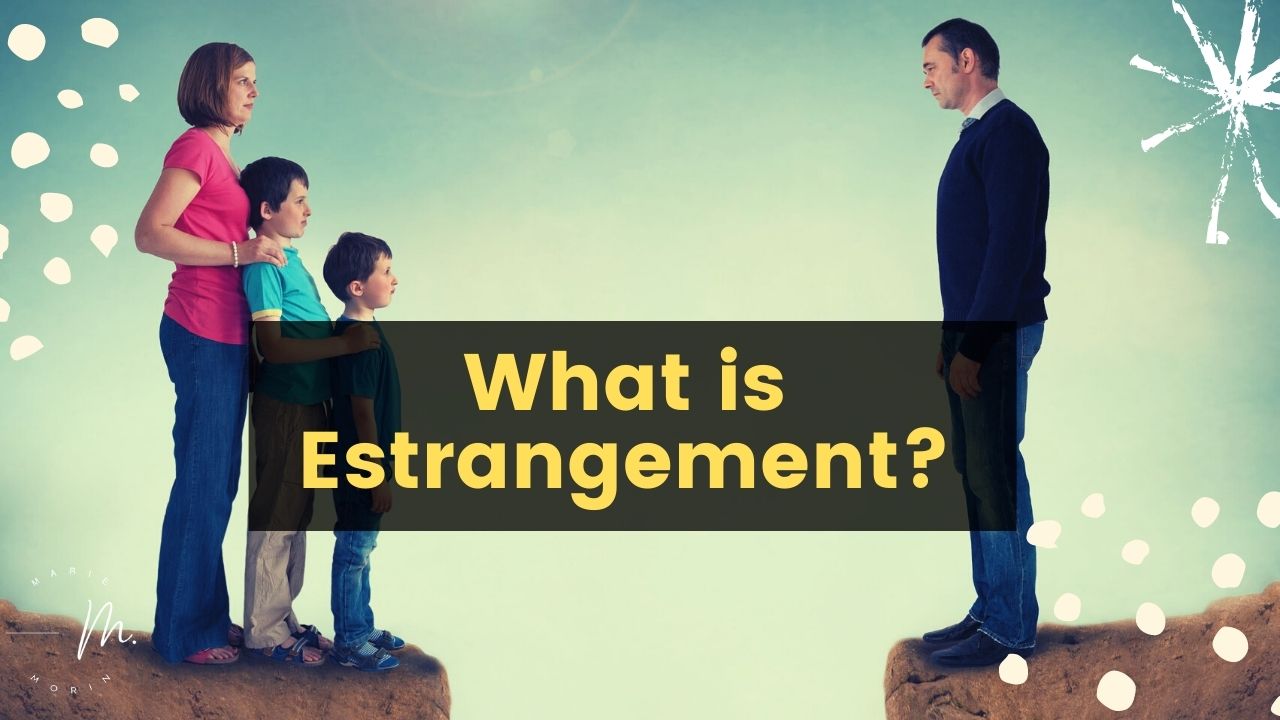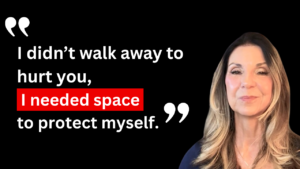Estrangement is the relatively recent term to describe when family members experience physical and emotional distancing resulting from one member’s choice to do so. When this happens, the recipient or recipients experience a range of emotional responses. The initiator also endures the stress of a detached relationship.
The initiator’s perceptions may be that they can no longer tolerate the company of their family member. For some, estrangement is a choice due to self-preservation against impossible family circumstances. There are an array of reasons behind the need to detach.
There may be a history of abuse, substance use, mental illness complication, and intense family conflict and dysfunction. Estrangement can happen in relationships where family life is stable, but perhaps there is infidelity, divorce, expectations, and disappointments. There can be an array of situations that precede someone’s decision to detach. Everyone’s story is different.
Estrangement, being cut off, can also include occasionally seeing the family member on holidays, weddings, funerals, or other occasions. When there is a cutting-off, you may see your family member, but there is an emotional distance. The emotional space can be troublesome, creating a sense of profound loss and grief. For some, distancing is a relief; however, there are likely lingering emotional complications.
Research suggests approximately seventy million people in the United States report experiencing alienation from one or more family members. The experience of being cut off includes about 27% of individuals in the United States. Yet, since many people are uncomfortable sharing, many more may suffer in silence.
Feelings of embarrassment and shame motivate people to keep their stories a secret. Naturally, it is difficult to tell others who may not relate when one is scorned and ignored. With this in mind, the individual has little or no support for their distress.
Dr. Karl Pillemer, in his book Fault Lines, interviewed about 1200 individuals with estrangement stories. As a leading family sociologist and researcher, he describes how being cut off can cause chronic stress. Dr. Pillemer noted that broken attachment bonds and disengaging from relationships promote deep pain. Chronic stress results from a sense of eternal uncertainty about what will become of the relationship. The weight of disconnection and uncertainty causes excessive pressure.
The emotional pain and chronic stress from being cut off from your loved one are distressful. Kylie Agilias book, “Family Estrangement: A Matter of Perspective.“
discusses the individual’s pain and believes the drastic decision to separate is necessary. What complicates estrangement includes opposing beliefs, values, behaviors, and goals. One may not be ready or willing to move toward resuming connection.
Kyle Agilias, a researcher, social worker, and educator, also discusses the complicated nature of estrangement and its prevalence. According to Agilias, 1 in 12 people struggle with this type of separation. She found that the experience of alienation for either the one who initiates or the recipient of being cut off can be traumatizing.
While trauma is an inordinate experience, it is treatable. As Dr. Pillemer suggests, the possibility of reconciliation exists. There are benefits to reconciling, such as avoiding regrets, reconnection, access to resources, and sharing your life. Whatever your experience, you don’t need to stay in your stressful state alone. Professional help is available. Take care of yourself, prioritize self-care, be around people you enjoy, read about other stories. Keep informed about estrangement and discover what you can do to feel better. Remember, you are not alone.
You can prioritize your self-care by taking time to replenish and fill your reservoir. Try something new such as meditation and diaphragmatic breathing, so you can learn to relax again.
Stay in touch with those you enjoy being around. Be kind and compassionate with yourself.
Treat yourself as you would a dear friend. Be sure to set healthy boundaries for your wellness. If you need more care, consider a professional to help you through.
Resources:
Feeling Heartbroken and Alone? How to Pick up the Pieces When You are Estranged.
Find my eBook on this topic go to: https://morinholistictherapy.com/findjoy/.
For more on dealing with estrangement, read this:
Family Estrangement: A Matter of Perspective. by Kylie Agilias
Fault Lines, Dr. Karl Pillemer
Get The eBook: Feeling Heartbroken and Alone? How to Pick Up the Pieces When You are Estranged.
Resources:
- Agllias, Kylie. Family Estrangement A Matter Of Perspective. New York, Routledge, 2017.
- Coleman, Joshua. Rules of Estrangement. New York, Harmony Books, 2020.
- Morin, Marie. Feeling Heartbroken and Alone? How to Pick Up the Pieces When You are Estranged. eBook. 2022.
- Morin, M.L. [Morin Holistic Therapy]. (2022, January 4 ). What is Family Estrangement? You Are Not Alone.
- Morin, M.L. [Morin Holistic Therapy]. (2021, September 8). Diaphragmatic Breathing: 5 Minute Deep Breathing Exercise for Beginners.
- Morin, Marie. How to Deal with Estranged Family During the Holidays (2021, November 21) Sixty and Me. https://sixtyandme.com/estranged-family-holidays/
- Pillemer, Karl. Fault Lines Fractured Families and How to Mend Them. New York Penguin Random House, 2020.









